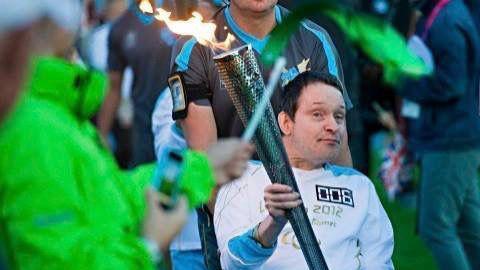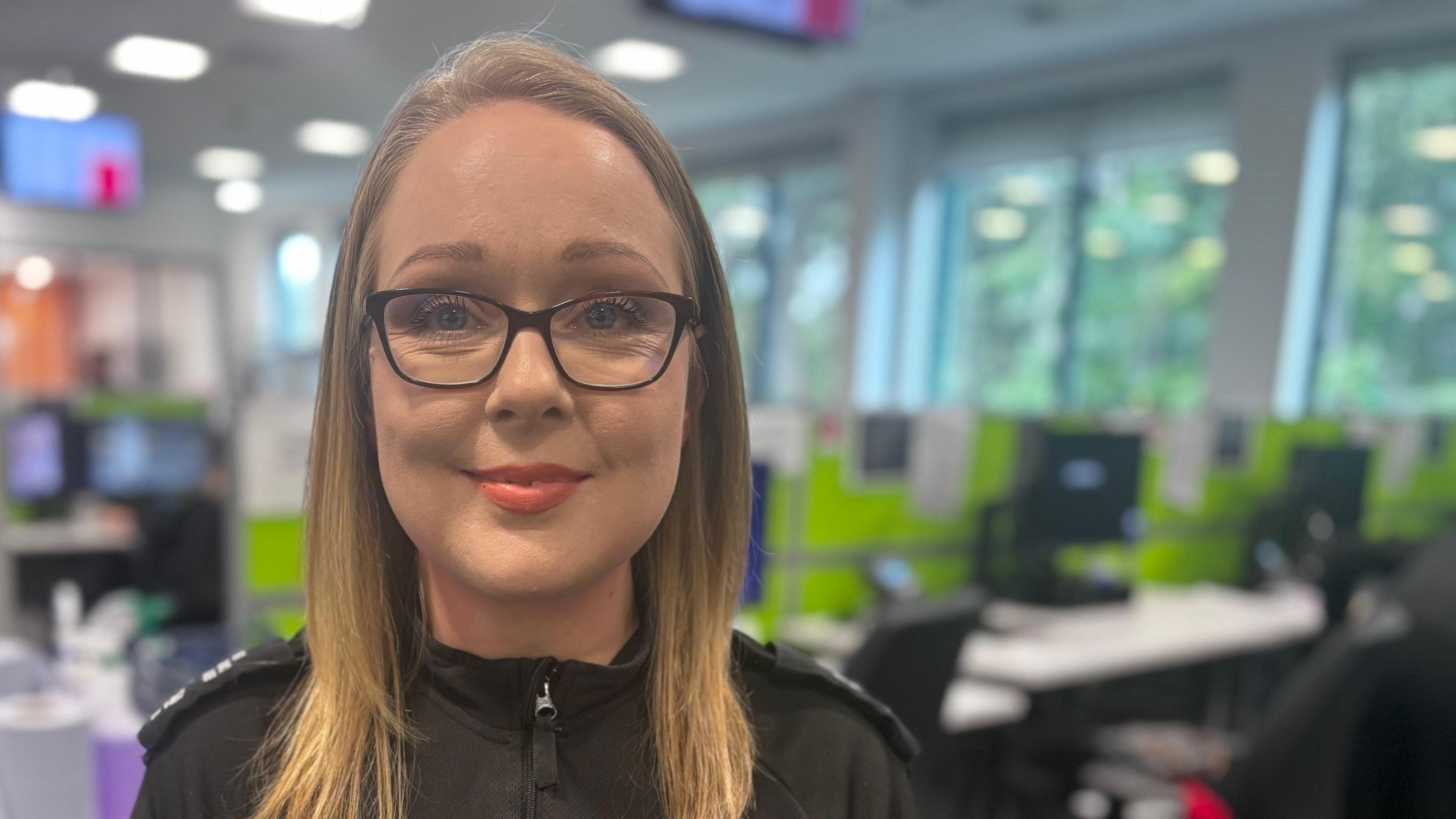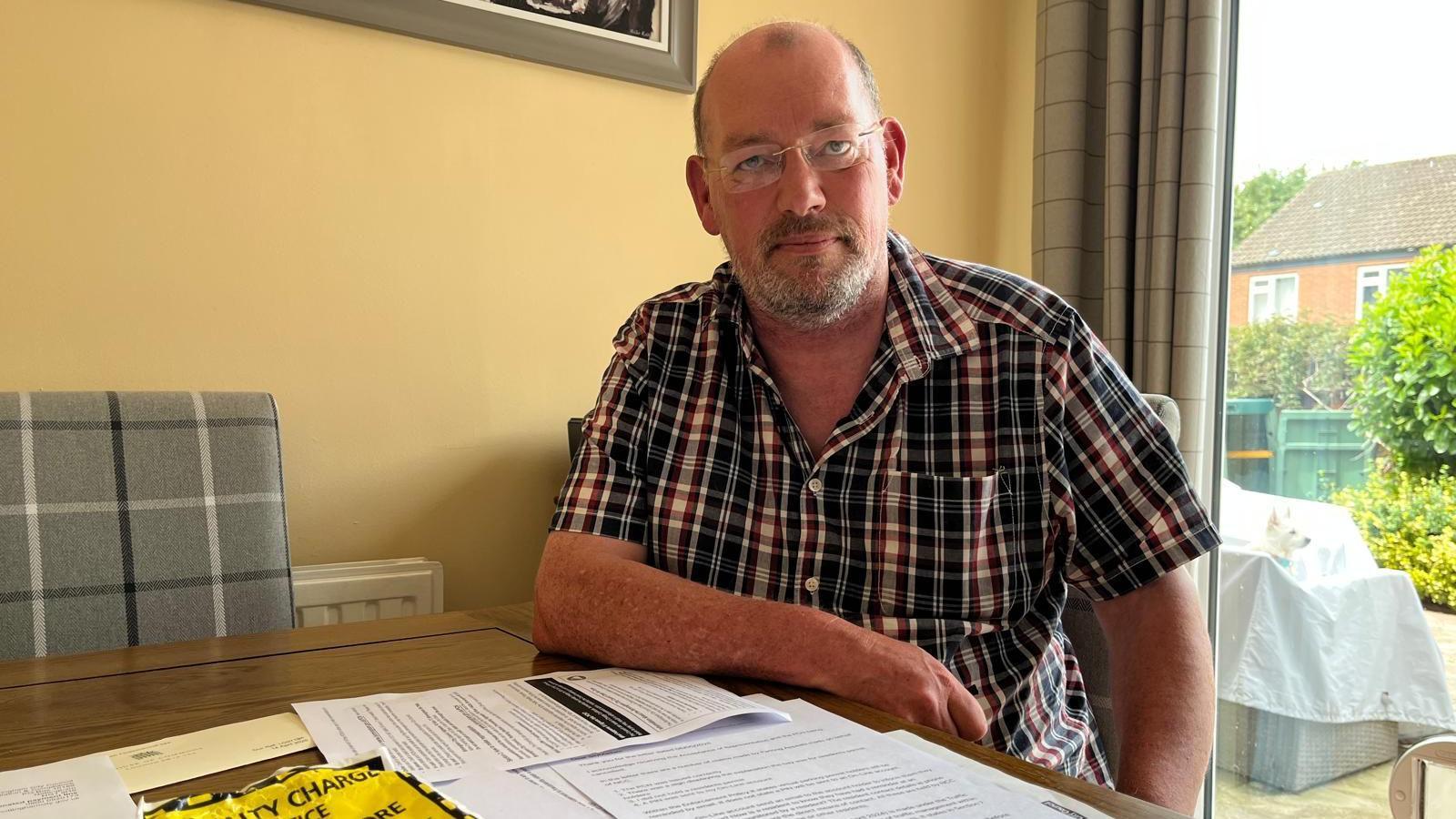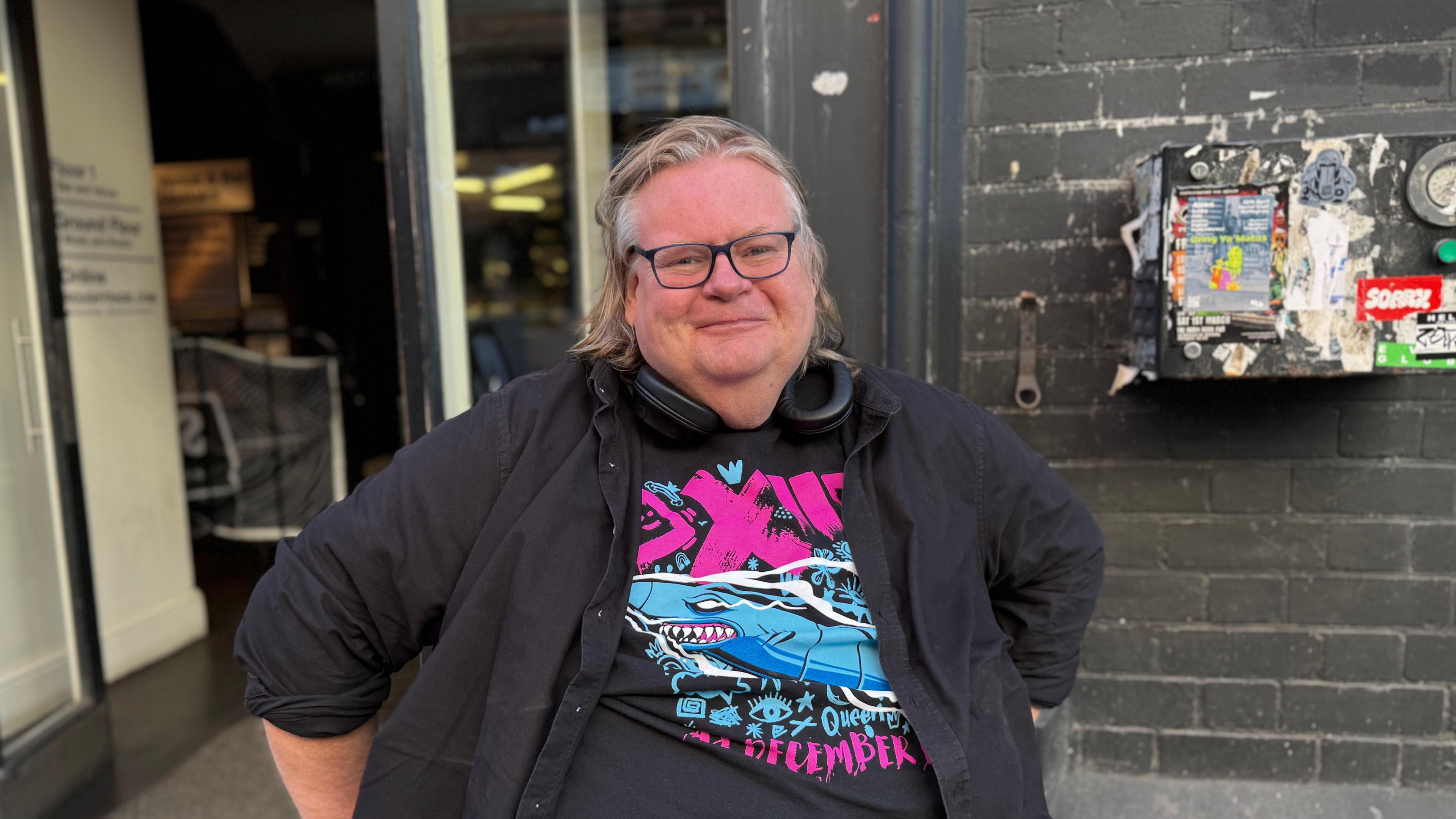Paralympian’s plea to roll out 999 initiative nationwide

Chris Channon competed at two Paralympic games in the 1980s
- Published
A paralympian who set up a 999 initiative after a call handler thought he was a prank caller is aiming to have his scheme adopted by police nationwide.
Chris Channon MBE, 68, who uses a wheelchair and has difficulties communicating due to cerebral palsy, worked with Nottinghamshire Police to develop Pegasus in 2008, after a call handler from the force hung up on him.
Pegasus is a method of disabled people sharing their information with emergency call handlers to help communication in what can be life-or-death situations.
Hundreds of people now use the service across Nottinghamshire alone, and Mr Channon, of Arnold, now hopes Pegasus will be adopted by all police forces.
Mr Channon, who competed in the 1980 Paralympic Games in the Netherlands and won a silver medal in the 10m air rifle at the 1984 Stoke Mandeville and New York Games, said his experience of using 999 had been "frustrating and scary".
He said: "The call handler put the phone down on me. Thankfully the call wasn't a life or death situation - but I kept thinking, what if it had?"

Mr Channon was a torch bearer and was invited to meet the Pope after his sporting endeavours
It led to him creating Pegasus, which allows registered users to contact 999 with a special PIN which shares their information with emergency services - whether on a mobile, a landline, by text, or in person, which is "vital for those who aren't tech savvy", said Mr Channon.
"I was initially told that it couldn't be done," said Mr Channon, "but fortunately I met an officer who saw the promise."
A year-long pilot led to the scheme being adopted by Nottinghamshire, then several other forces joined, including Surrey and the city of London.
Those forces can also share information with ambulance services and fire brigades.
'Very beneficial'
Emma Ball, first contact manager for Nottinghamshire Police, said Pegasus had proved to be "a really amazing scheme".
She said: "It saves lots of time and we can make sure that we send people to those that need us the most."
Mr Channon said he has used the scheme several times himself, and hopes it will become standard for emergency services nationwide.
Retired Nottinghamshire police officer Anthony Davies, who helped to develop the scheme, said: "Both Chris and myself firmly believe that Pegasus would work really well if all police services agreed to implement it.
"I also think that other large organisations such as the NHS and local authorities would find using Pegasus very beneficial."

Pegasus is a free, tailored service available for any member of the public, said Emma Ball of Nottinghamshire Police
Mr Channon said: "A national scheme would initially be a massive undertaking. Pegasus has been the hardest thing I've done and there have been times when I seriously thought about giving up.
"But I know that there are many people, including the elderly and those for whom English is not their first language, as well as those with physical and learning disabilities, who would struggle making an emergency call."
A National Police Chiefs' Council spokesperson said while it backs Pegasus it was up to individual forces to decide to adopt the scheme.
They said the council "continue to try and improve policing and make it as inclusive and accessible as possible for everyone".
Additional reporting by Jude Winter
Get in touch
Tell us which stories we should cover in Nottingham
Follow BBC Nottingham on Facebook, external, on X, external, or on Instagram, external. Send your story ideas to eastmidsnews@bbc.co.uk, external or via WhatsApp, external on 0808 100 2210.
Related topics
- Published20 July

- Published5 April
